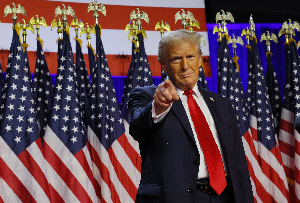The New Patriotic Party’s 2020 Manifesto promise of considerable reductions in the electricity tariffs if the next NPP government manage to negotiate the erstwhile NDC administration’s calamitous Power Purchasing Agreements (PPAs) is welcome news, so to speak.
That being said, the sceptics may have a point for contending that the PPA negotiations have come a bit late. But it is better late than never, they say.
Suffice it to stress that any upward adjustment of the electricity tariff is not an ideal situation for every Ghanaian, but it has somehow become a necessary evil mainly due to the erstwhile Mahama administration’s unpardonable negligence.
We cannot, however, state somewhat anecdotally that every ‘Take or Pay Agreement’ is nauseatingly inappropriate or unnecessary, far from it.
But in the case of the erstwhile Mahama government’s numerous Power Purchasing Agreements, the interests of Ghanaians were not taken into consideration when signing the extraneous and relatively expensive agreements which eventually spawned excess power.
The fact, therefore, is, by ambivalently entering into ‘Take or Pay’ deal, Ghanaian consumers are unfairly being forced to pay exorbitant electricity tariffs.
More so, the seemingly impetuous argument by the exponents of the ‘Take or Pay’ agreement’s that we can sell the excess power to the neighbouring countries does not hold water, as a matter of fact.
This is because according to the experts, among all the neighbouring African countries, Ghana has the most expensive power generation.
And, there are those who propound somewhat tentatively that instead of paying over $600 million from our coffers, we can sell to the neighbouring countries at a reduced price.
Well, the proponents of the seemingly revoltingly ugly business proposal may have a point after all, given the financial strain on the country.
But the crucial question we should be asking the ‘Take or Pay’ ideologues is: does it make a business sense at all to deliberately purchase a product at a high price and sell at a loss?
Again, why must the Mahama government knowingly and fecklessly sign excessive and ostensibly expensive Power Purchasing Agreements with a view of selling the excess at a loss?
With all due respect, could that be counted as prudent and exceptional governance? I may ask.
Whichever way you may view the subject under discussion, we cannot deny or hide the fact that for well over five years, dumsor regrettably crippled Ghanaian businesses under the erstwhile Mahama administration.
So it was absolutely necessary for any responsible leader to take the relevant steps to bring the situation under control.
Thus the practicable solution back then, was for the Mahama administration to sign Power Purchasing Agreements to augment the existing power capacity.
However, the crucial question every discerning Ghanaian should be asking is: in our desperation to rectify the anomaly, do we actually have to pay for extra power we do not need?
Apparently, we have been informed by the experts that at present, Ghana needs around 2700 Mega Watts of power.
It is against such background that some of us are extremely flabbergasted to find out that the erstwhile Mahama administration somehow deemed it fit to sign Power Purchasing Agreements in excess of 5080 Mega Watts.
If you may remember, somewhere last year, the Akufo-Addo’s government pragmatically terminated eleven out of the thirty Power Purchasing Agreements (PPAs) signed during the erstwhile Mahama administration (see: ‘Gov't terminates 11 Power Purchasing Agreements signed under Mahama’; Michael Creg Afful/ghanaweb.com, 21/09/2019)
The decision to cancel the copious agreements was as a result of the recommendation by a review committee assembled by the Ministry of Energy to review all the Power Purchasing Agreements signed by the Mahama government.
The Committee, therefore, recommended that eight Power Purchasing Agreements with a combined capacity of 2070 Mega Watts were to proceed without modification, whereas four of them with a combined capacity of 1,810 MW were to be deferred to 2025.
The Committee also recommended that three Power Purchasing Agreements with a combined capacity of 1,150MW be deferred beyond 2020.
Shockingly, however, the Energy Minister, John-Peter Amewu, revealed that it would have cost Ghana some US$402.39million if the eleven Power Purchasing Agreements had been kept.
John-Peter Amewu revealed: "Pursuant to the review exercise, Government stands to make significant savings from the deferment and /or termination of the reviewed PPAs. The estimated cost of the termination is US$402.39 million, compared to an average annual capacity cost of US$586million each year or a commutative cost of $7.217 billion from 2018 to 2030. This yields an estimated savings of $6.8billion over the 13 year period."
In fact, Mr Amewu was absolutely right for asserting that the Mahama administration was reckless in signing Power Purchasing Agreements without taking into consideration the financial implications on Ghanaians.
Interestingly, Mr John-Peter Amewu disclosed that if the 26 Power Purchasing Agreements with a combined capacity of 8116 MW were to be deployed in addition to the existing generation capacity from hydro, the VRA plants at Aboadze and Tema, and the TICO, it would have resulted in a total installed capacity of about 11,000 MW.
Mr Amewu thus asserted: "This will by far be more than the current peak demand of 2400MW. Even an annual growth in demand of 10%, our country will not be able to utilize this capacity in two decades (source: Michael Creg Afful/ghanaweb.com, 2018).”
The overarching question some of us will continue to pose is: was the decision by the Mahama government to sign the excess Power Purchasing Agreements borne out of negligence, recklessness or what?
In sum, I would like to believe that Mahama administration’s tentative and irrational decision to sign the excessive Power Purchasing Agreements which has resulted in a needless cost of over $600 million per year was borne out of recklessness and sheer incompetence.
k.badu2011@gmail.com
Opinions of Saturday, 29 August 2020
Columnist: K. Badu, UK.



















